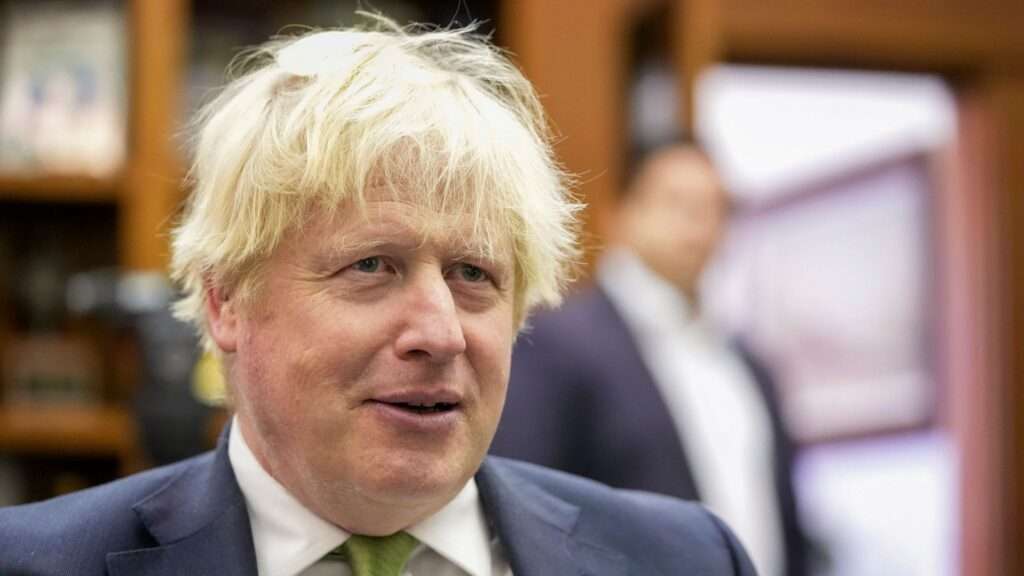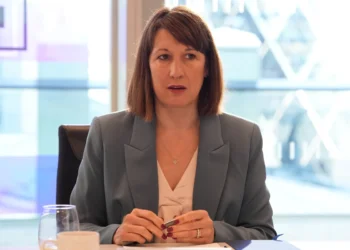Conservative candidates from “Red Wall” constituencies are increasingly frustrated with the central party’s campaign strategy.
These candidates feel abandoned as the Conservative Party shifts its focus to defending safer seats in southern England.
The “Red Wall” is traditionally a Labour stronghold in northern England, north Wales, and the Midlands.
While some candidates report receiving support from the central party, many others complain about the lack of visits from senior party figures and a noticeable shortage of financial and volunteer resources.
“There is absolutely a sense of: you’re in this on your own, it’s everyone for themselves,” said one candidate who won a red wall seat in 2019.
They recalled numerous ministerial visits in 2019, contrasting it with the current silence and lack of national campaign spending.
“Every time you ask if there’s any national spending available, they say no. There’s clearly no central money. You’ve got to spend your own cash,” they added. In 2019, there was significant national funding for campaign materials like leaflets.
In response to this support vacuum, some Red Wall candidates have used their own funds for digital advertising, even training non-specialist staff to manage these ads on platforms like Facebook.
Additionally, many candidates have sought endorsements from former Prime Minister Boris Johnson. Johnson has recorded over 50 personal video messages for candidates, particularly those in northern and Midland seats.
Despite his informal role in the campaign and spending much of his time on holiday, Johnson remains popular among local constituents.

His video endorsements typically feature him urging voters to support their local Tory candidate while warning against a Labour Party he describes as intent on “wokery” and “kowtowing to the European Union.”
The Conservative Party’s shift towards defending seats in the “Blue Wall” — affluent, often commuter belt areas facing threats from the Liberal Democrats — has been highlighted by Prime Minister Rishi Sunak’s campaign itinerary.
Sunak Abandons the North
Since the beginning of the month, Sunak made just three trips to northern England, one of which was to his own Yorkshire constituency, and another for a TV debate in Grimsby.
In contrast, he has spent considerable time in southern and southwestern England, visiting constituencies with comfortable 2019 majorities of around 15,000 votes.
Despite this focus, the retreat from the red wall is not complete. About 15 red wall seats have been earmarked to receive extra election literature, replacing national campaign messages with praise for the individual Tory incumbents and their local achievements.
“This is based on polling which shows that in these areas, the local candidate is significantly out-performing the party as a whole, and so they maybe stand more of a chance,” a Conservative source explained, acknowledging the party’s brand is currently “pretty toxic.”
The source admitted that while some support is provided, there is a critical shortage of volunteers.
This shortage is exacerbated by the party’s shrinking and aging membership and the loss of numerous councilors in recent local elections.
Given the scarcity of volunteers, it is understood that some sitting red-wall Tories in seemingly unwinnable seats have been advised to abandon local campaigning efforts and instead support nearby constituencies that are deemed more salvageable.
While these concerns are typically voiced in private, a few Conservatives have publicly conceded that they expect to face significant losses in the upcoming elections on July 4.
This disillusionment among Red Wall Conservatives highlights the party’s broader challenges.
The Conservatives must navigate an increasingly complex political landscape, balancing the need to defend traditional strongholds while attempting to retain the gains made in previously Labour-dominated areas.
READ ALSO: Innovative Domestic Revenue Generation, A The Path to a ‘Ghana Beyond Aid’





















